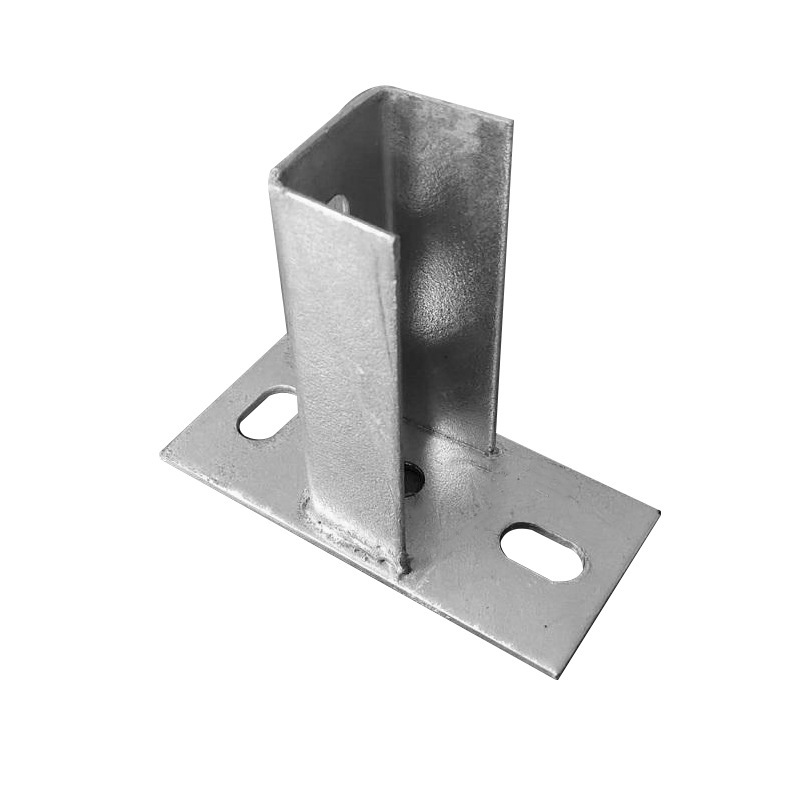

m3 washer
Nov . 12, 2024 13:41 Back to list
m3 washer
Understanding the M3 Washer Importance and Applications
The M3 washer is a fundamental component in various engineering and mechanical applications, known for its ability to distribute load, reduce friction, and prevent damage to surfaces. In this article, we will explore the significance of the M3 washer, delving into its specifications, types, materials, and applications across different industries.
What is an M3 Washer?
An M3 washer is designed to fit M3 bolts and screws, which have a nominal diameter of 3 millimeters. Washers, in general, are thin, flat, disk-shaped pieces of metal or other materials that serve multiple purposes. The primary role of a washer is to create a load-bearing surface for fasteners, helping to secure them in place while also protecting the surfaces they contact.
The M3 designation points to the thread size of the fastener it is intended for, making it essential to choose the correct washer to ensure optimal performance. M3 washers can be found in various shapes, including flat, lock, and spring washers, each serving unique functions.
Specifications of M3 Washers
M3 washers typically have a diameter ranging from 6 to 7 millimeters, with a thickness of around 1 millimeter. These specifications may vary slightly based on the washer type and material. The inner diameter is specifically designed to accommodate M3 screws or bolts, allowing for seamless integration in assemblies.
Types of M3 Washers
1. Flat Washers These are the most common type of washers. They provide a flat surface for load distribution, which minimizes surface damage and prevents loosening caused by vibration. Flat washers are crucial in applications where consistent pressure and load dispersion are vital.
2. Lock Washers Designed to prevent loosening, lock washers come in various designs, including split, tooth, and wave washers. They secure fasteners against vibration and shock, making them ideal for machinery and automotive applications.
3. Spring Washers These washers provide elasticity and help maintain tension in a fastened joint. They are often used in applications where expansion and contraction could affect the integrity of the joint.
4. Fender Washers With larger outer diameters in relation to the inner diameter, fender washers distribute the load over a larger area, making them suitable for thin materials.
Materials Used for M3 Washers
m3 washer

M3 washers can be made from a variety of materials, each chosen based on the application requirements
- Steel Carbon steel and stainless steel are common choices for wash manufacturers because of their strength and durability. Stainless steel washers offer excellent corrosion resistance, making them suitable for outdoor or humid applications.
- Plastic Some applications require non-metallic washers to avoid galvanic corrosion or electrical conductivity. Plastic washers are lightweight and can be used in places where plastic's lower strength is acceptable.
- Copper and Brass These materials are often used in applications requiring conductivity or resistance to corrosion and are more common in electrical applications.
Applications of M3 Washers
M3 washers find use across various industries, including
- Automotive In vehicles, M3 washers are commonly used in engines and assembly components to secure bolts and prevent loosening due to vibrations.
- Electronics In electronic devices, M3 washers help secure components on circuit boards and throughout assemblies, ensuring a stable connection.
- Construction Construction projects utilize M3 washers in various fixtures and fittings, where strength and reliability are crucial.
- Manufacturing M3 washers are extensively utilized in manufacturing processes, particularly in machinery assembly lines, where precision is required.
Conclusion
The M3 washer is a small but vital component in many applications, offering essential benefits such as load distribution, vibration prevention, and surface protection. Understanding the types, materials, and specific use cases for M3 washers empowers engineers and designers to make informed decisions in their projects.
As with any component in a mechanical assembly, selecting the appropriate M3 washer can significantly impact the performance and longevity of the overall system. Whether in automotive design, electronics manufacturing, or construction, M3 washers play an indispensable role in achieving reliable and efficient results.
Latest news
-
Hot Dip Galvanized Bolts-About LongZe|High Strength, Corrosion Resistance
NewsJul.30,2025
-
High-Strength Hot Dip Galvanized Bolts - Hebei Longze | Corrosion Resistance, Customization
NewsJul.30,2025
-
Hot Dip Galvanized Bolts-Hebei Longze|Corrosion Resistance&High Strength
NewsJul.30,2025
-
High-Strength Hot-Dip Galvanized Bolts-Hebei Longze|Corrosion Resistance&High Strength
NewsJul.30,2025
-
Hot Dip Galvanized Bolts-Hebei Longze|Corrosion Resistance&High Strength
NewsJul.30,2025
-
Hot Dip Galvanized Bolts - Hebei Longze | Corrosion Resistance, High Strength
NewsJul.30,2025

